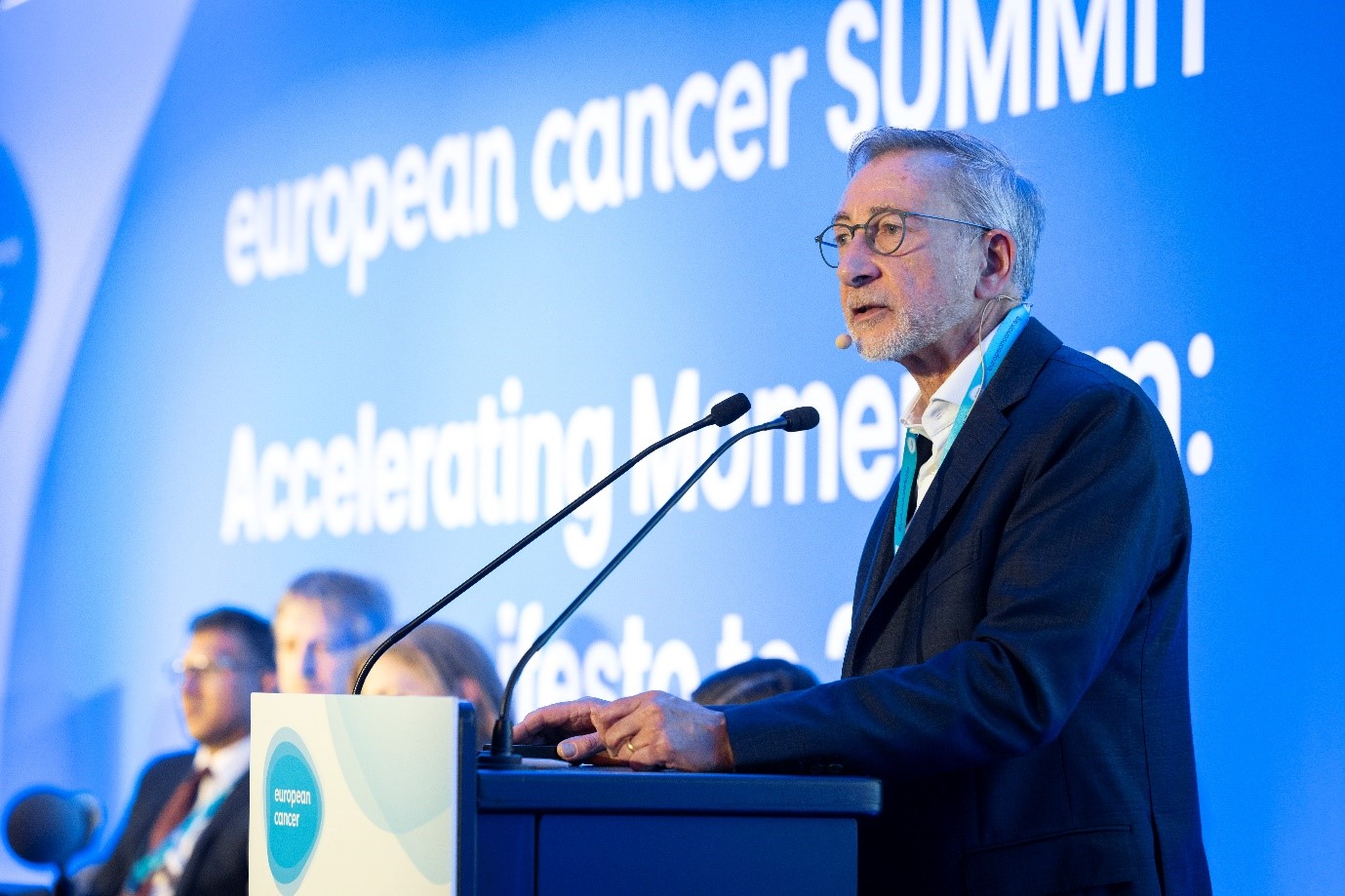Health Systems and Treatment Optimisation Network
Contact the NetworkNB: This page is no longer updated. Please follow the Health Systems and Quality Cancer Care Network for latest news.
European Cancer Summit 2023 Session: Pragmatic Clinical Trials - A crucial building block for health systems and treatment?
 |
Watch the session recording here and read the full European Cancer Summit 2023 Report to discover the rich and diverse discussions of this session.
The Time to Move Forward on Treatment Optimisation is Now!
The European Parliament’s Special Committee on Beating Cancer (BECA) held an expert hearing devoted to the equal access to cancer medicines and treatments. Speaking at the hearing, Denis Lacombe, Director-General of the European Organisation for Research and Treatment of Cancer (EORTC) and Co-Chair of the Health Systems and Treatment Optimisation Network, highlighted the need for the European Union to move further forward on achieving the ambitions of the widely supported treatment optimisation agenda.
Denis Lacombe drew the attention of the Committee to recent scientific evidence highlighting clear gaps in the cancer research continuum, as well as in the knowledge on how to best use approved cancer treatments. These unaddressed areas are impeding patient access to optimal cancer treatment and yet are not gaining significant enough attention within prevalent EU strategies.
More information on the hearing, including a video recording and written summary, can be found here on the European Parliament's website.
Building Wide Consensus around the Health Systems and Treatment Optimisation Agenda
Building upon its founding aims and action plan, an important activity of the Network since its establishment has been to widen awareness of, and consensus around, key underlying observations and ways to address inefficiencies, imbalances and inequalities in respect to cancer treatment and care delivery and access across Europe.
This has been made possible through a variety of high-level conversations with representatives of the European Cancer Organisation 's Member Societies, Patient Advisory Committee and Community 365, as well as other invited experts from the European cancer community. The Network has been delighted to welcome new important participants to contribute to these activities, including from the fields of hematology, pancreatic cancer, rare cancers, independent cancer research and primary care.
Further public positioning continues to be our focus around the key recommendations of:
- Independently assessing and publishing the critically needed questions in cancer research
- Reorientating funding to address the gaps in the cancer research continuum
Background
In recent decades cancer care has seen improvements in:
- the speed and accuracy of diagnostic procedures;
- the effectiveness of surgery, radiation therapy, and medical treatments;
- the power of information technology; and
- the development of multidisciplinary, specialist-led approaches to care.
Such innovations are essential if we are to continue improving the lives of cancer patients across Europe despite financial pressures on our healthcare systems.
To help health systems meet the decision-making challenges related to these new treatment options, members of the European Cancer Organisation have initiated many actions to assist. These include the EORTC Treatment Optimisation manifesto and projects orientated towards bringing about more value-based approaches in respect to innovation uptake.
The Health Systems and Treatment Optimisation Network started its work in April 2020, working with over 45 European Cancer Organisation Member Societies, Patient Advisory Committee and Community 365 participating in the Network, as well as with invited experts.
The guiding mission of the Health Systems and Treatment Optimisation Network is to bring about a reorientation of health systems and research approaches in cancer in order to achieve the twin aims of:
- treatment optimisation (i.e. optimising cancer treatment for the benefit of the patient); and
- health systems optimisation (i.e. optimising cancer care delivery for the benefit of the healthcare system).
At the core of the Network’s plan to achieve these aims is the conduct of independent research on multidisciplinary cancer treatment, following a reverse engineering approach to address gaps in the cancer research continuum and prioritise questions relevant and meaningful for patients and public health.


